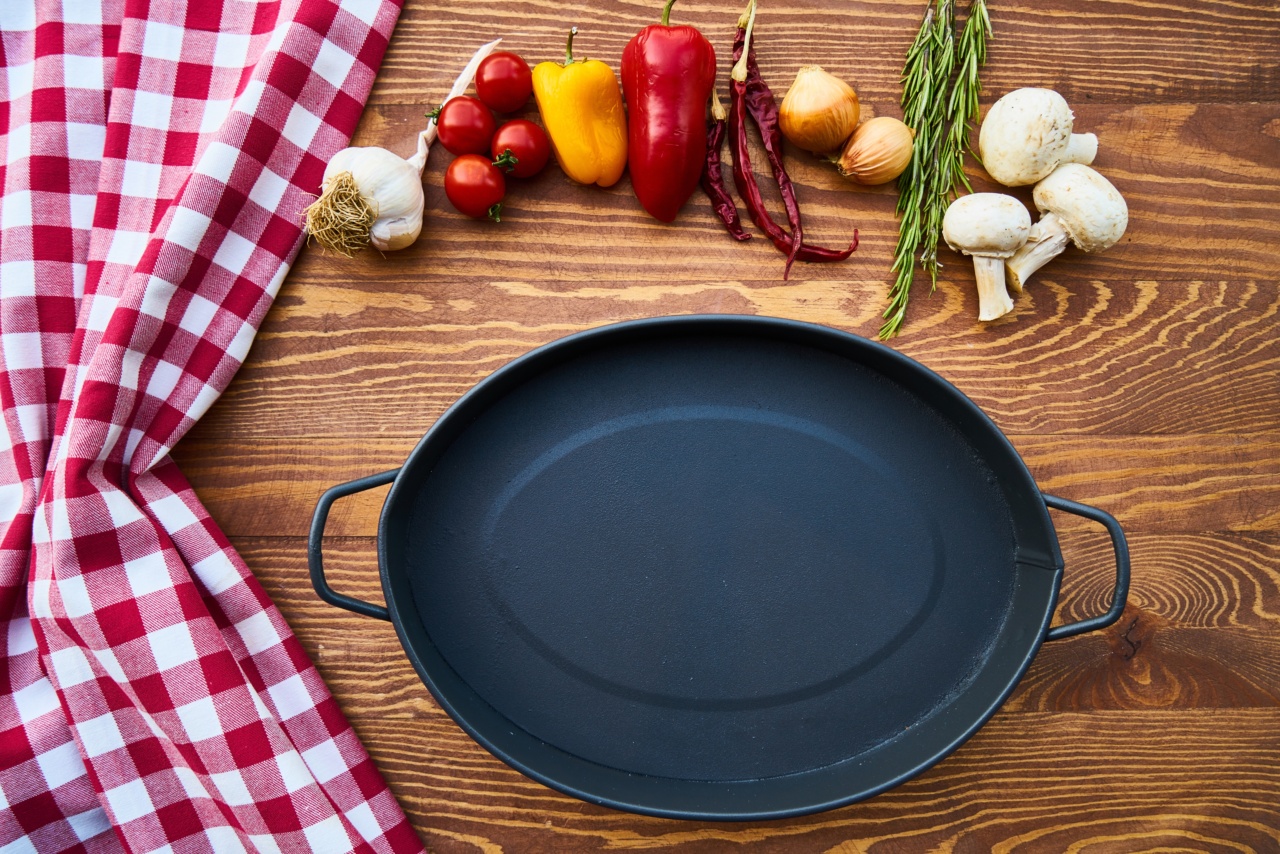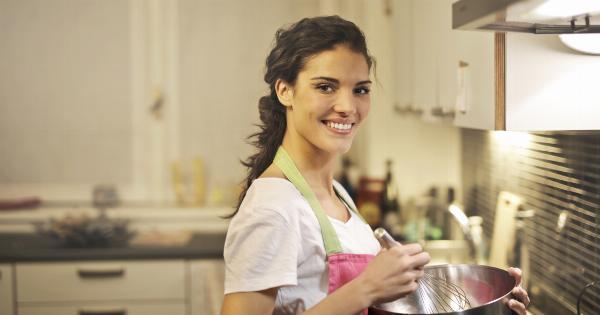Cast iron pans have become increasingly popular in recent years. They are known for their durability, versatility, and ability to retain heat.
However, there are certain types of food that should not be cooked in cast iron pans, as they can cause damage to the pan and even affect the taste of the food. In this article, we will go over 30 foods that you should avoid cooking in cast iron pans.
Foods to Avoid
1. Acidic Foods
Foods that are high in acid, such as tomato sauce, vinegar, and citrus fruits, should not be cooked in cast iron pans. The acid can react with the iron in the pan and cause it to leach into the food, giving it a metallic taste.
2. Eggs
Eggs can easily stick to the surface of a cast iron pan, making them difficult to cook. Furthermore, the heat distribution of cast iron pans may cause the eggs to cook unevenly.
3. Delicate Fish
Cooking delicate fish, such as tilapia or sole, in a cast iron pan can be challenging. The high heat retention of the pan can cause the fish to overcook and become dry.
4. Sticky Rice
Sticky rice can easily stick to a cast iron pan, making it difficult to clean. Furthermore, the high heat retention of the pan can cause the rice to overcook and become mushy.
5. Desserts
Cast iron pans are not recommended for making desserts, such as pies or cakes. The iron in the pan can react with the acidic ingredients in the dessert, affecting the taste and texture of the final product.
6. Cheese
Cooking cheese in a cast iron pan can be challenging, as it can easily stick to the surface of the pan. Furthermore, the heat retention of the pan can cause the cheese to overcook and become dry and rubbery.
7. Fried Rice
Fried rice requires a high heat, but the high heat retention of a cast iron pan can cause it to overcook and become mushy. Additionally, the rice can easily stick to the surface of the pan.
8. Pasta
Cooking pasta in a cast iron pan can be challenging, as it can easily stick to the surface of the pan. Furthermore, the heat retention of the pan can cause the pasta to overcook and become mushy.
9. Oatmeal
Although cast iron pans are great for cooking oatmeal, they are challenging to clean afterward. The oats can easily stick to the surface of the pan, making it difficult to remove them.
10. Leafy Greens
Cooking leafy greens, such as spinach or kale, in a cast iron pan can cause them to become bitter. The iron in the pan can react with the chlorophyll in the greens, giving them an unpleasant taste.
11. Grilled Cheese
Cooking a grilled cheese sandwich in a cast iron pan can be challenging, as the cheese can easily stick to the surface of the pan. Furthermore, the high heat retention of the pan can cause the cheese to overcook and become dry.
12. Delicate Vegetables
Cooking delicate vegetables, such as asparagus or zucchini, in a cast iron pan can be challenging. The high heat retention of the pan can cause the vegetables to overcook and become mushy.
13. Wine
Cooking with wine in a cast iron pan can be challenging, as the acid in the wine can react with the iron in the pan. This can affect the taste of the final dish and even cause the pan to become discolored.
14. Tofu
Cooking tofu in a cast iron pan can be challenging, as it can easily stick to the surface of the pan. Additionally, the high heat retention of the pan can cause the tofu to overcook and become dry.
15. Chocolate
Cast iron pans are not recommended for cooking chocolate, as the iron in the pan can react with the cocoa in the chocolate. This can affect the taste of the chocolate and even cause it to seize.
16. Curry
Cooking curry in a cast iron pan can be challenging, as the high heat retention of the pan can cause the curry to burn. Additionally, the acid in the curry can react with the iron in the pan, affecting the taste of the final dish.
17. Thin Meats
Cooking thin cuts of meat, such as chicken breast or pork chops, in a cast iron pan can be challenging. The high heat retention of the pan can cause the meat to overcook and become dry.
18. Bacon
Cooking bacon in a cast iron pan can be challenging, as the grease from the bacon can accumulate on the surface of the pan. This can cause the bacon to stick and burn.
19. Scrambled Tofu
Cooking scrambled tofu in a cast iron pan can be challenging, as the tofu can easily stick to the surface of the pan. Additionally, the high heat retention of the pan can cause the tofu to overcook and become dry.
20. Spicy Foods
Cooking spicy foods in a cast iron pan can be challenging, as the capsaicin in the spices can react with the iron in the pan. This can affect the taste of the final dish and even cause the pan to become discolored.
21. Baked Beans
Baked beans can easily stick to the surface of a cast iron pan, making them difficult to clean. Additionally, the acid in the beans can react with the iron in the pan, affecting the taste of the final dish.
22. Stir-Fry
Cooking stir-fry in a cast iron pan can be challenging, as it requires a high heat to cook properly. The high heat retention of the pan can cause the vegetables to overcook and become mushy.
23. Cream Sauces
Cooking cream sauces in a cast iron pan can be challenging, as they can easily scorch on the surface of the pan. Additionally, the fat in the cream can accumulate on the surface of the pan, making it difficult to clean.
24. Fresh Herbs
Cooking fresh herbs in a cast iron pan can cause them to become bitter. The iron in the pan can react with the chlorophyll in the herbs, giving them an unpleasant taste.
25. Pancakes
Cooking pancakes in a cast iron pan can be challenging, as the batter can easily stick to the surface of the pan. Additionally, the high heat retention of the pan can cause the pancakes to overcook and become dry.
26. Caramel
Cooking caramel in a cast iron pan can be challenging, as it can easily scorch on the surface of the pan. Additionally, the high heat retention of the pan can cause the caramel to overcook and become dry and brittle.
27. Cornbread
Cooking cornbread in a cast iron pan can be challenging, as the batter can easily stick to the surface of the pan. Additionally, the high heat retention of the pan can cause the cornbread to overcook and become dry.
28. Hash browns
Cooking hash browns in a cast iron pan can be challenging, as they can easily stick to the surface of the pan. Additionally, the high heat retention of the pan can cause the hash browns to overcook and become dry.
29. Gravy
Cooking gravy in a cast iron pan can be challenging, as it can easily scorch on the surface of the pan. Additionally, the fat in the gravy can accumulate on the surface of the pan, making it difficult to clean.
30. Hot and Sour Soup
Cooking hot and sour soup in a cast iron pan can be challenging, as the acid in the soup can react with the iron in the pan. This can affect the taste of the final dish and even cause the pan to become discolored.
Conclusion
While cast iron pans are great for cooking many types of food, there are certain types that should be avoided. Acidic foods, delicate fish, and sticky rice are just a few examples.
By avoiding these foods, you can ensure that your cast iron pan remains in good condition and that your food tastes great.































